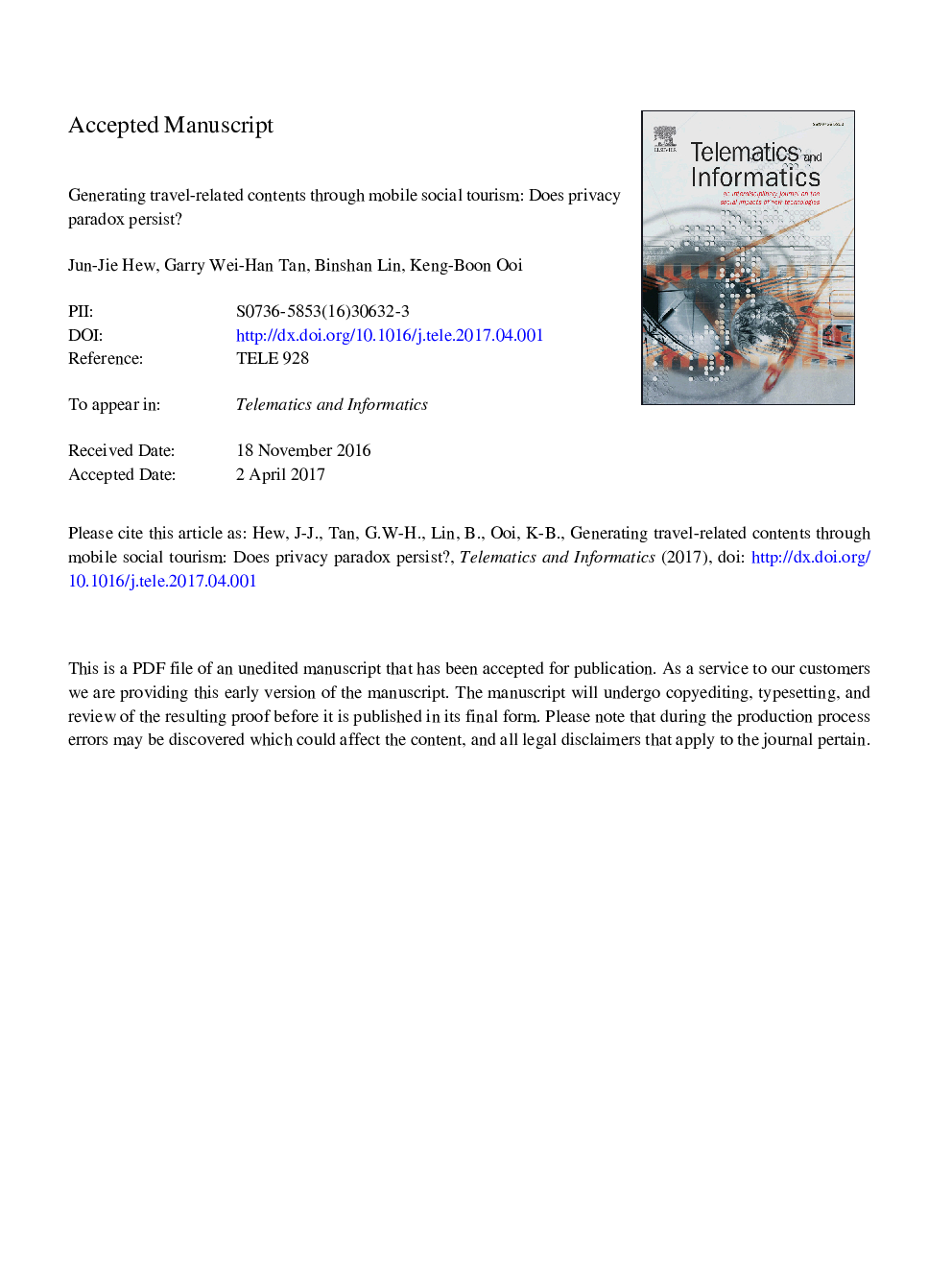| Article ID | Journal | Published Year | Pages | File Type |
|---|---|---|---|---|
| 6889931 | Telematics and Informatics | 2017 | 54 Pages |
Abstract
In view that smart tourism is a neglected research area and privacy concern is a prevalent issue that deserves spotlight in smart tourism research, this study seeks to explain continuance intention to create user-generated contents among travellers within the mobile social tourism context through an integrated framework that consists of privacy concern, sense of belonging, and self-determination theory. Mobile social tourism, which refers to the use of mobile social media in tourism activities, is a newly proposed term that fits into the scope of smart tourism in this study. PLS-SEM has been employed to analyse the data collected through self-administered questionnaires. Most structural paths in the framework are consistent with past literatures, except for the negative influences of privacy concern. The mediation analysis suggests that these effects have been neutralized by perceived benefits and sense of belonging, which reaffirms the “privacy paradox” phenomenon in smart tourism research. Overall, the framework could provide adequate explanation towards continuance intention to create user-generated contents under the context of mobile social tourism. Both theoretical and practical implications are then discussed.
Related Topics
Physical Sciences and Engineering
Computer Science
Computer Networks and Communications
Authors
Jun-Jie Hew, Garry Wei-Han Tan, Binshan Lin, Keng-Boon Ooi,
